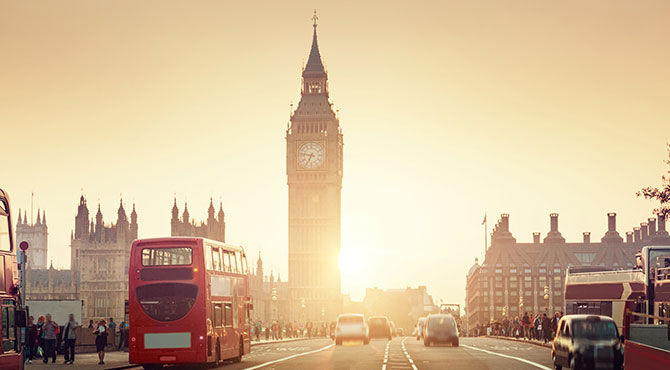Fall in arrivals of EU nationals leads to London ‘wobble’
There are fears that Brexit is causing a drop in business confidence suggests new report. The report suggests a drop in EU nationals moving to the UK has had a knock-on effect on London’s economy.

Fall in business confidence following Brexit
Fears over the impact of Brexit were also causing a fall in business confidence, a reduction in job creation and slowdown in house price growth, says the report from the Centre for London.Research by the think-tank found that registrations for national insurance numbers by foreign citizens had fallen by 15 per cent in London since the referendum on EU membership a year ago, with three-quarters of the decline attributable to a drop in migrants from Europe.The report also said that job creation in the capital was slowing and now lagged behind the rate in the rest of the UK. However, it also pointed out that London’s unemployment rate was at an historic low of 5.5 per cent and that there had been a fall in the number of young people not in education, employment or training.Ben Rogers, director of Centre for London, said, “London has shown remarkable resilience in the years following the recession. But its growth has not been painless. Levels of inequality have soared. Congestion, pollution and the housing shortage have all worsened.“While no-one knows how Brexit will play out, this new analysis suggests that London’s economy is beginning to wobble. It also highlights the need to tackle London’s critical challenges to ensure it is in the best possible position to deal with Brexit.”Related stories:
- Mayor leads call for London to stay open to foreign talent
- French trying to 'exploit' Brexit to attract banks, says ex-minister
- Chancellor pledges access to foreign skills after Brexit
Constrained consumer spending causing UK economy to slow
Coinciding with the report was the publication of PwC’s UK Economic Outlook research, which indicated the UK economy would slow down further because of constrained consumer spending and because of falling business investment as a result of Brexit uncertainty.Downgrading its prediction of GDP growth this year from 1.6 per cent to 1.5 per cent, PwC said consumer spending – the crucial economic driver – was taking a double hit from higher inflation and low wage growth.John Hawksworth, PwC’s chief economist, added, “Brexit-related uncertainty may hold back business investment, but this should be partly offset by planned rises in public investment.“Fiscal policy could also be further relaxed in the 2017 Autumn Budget to offset the ongoing, real squeeze on household spending power.”However, Mr Hawksworth did not believe the UK economy was heading towards recession. “There are still downside risks relating to Brexit, but there are also upside possibilities if negotiations go smoothly and the recent Eurozone economic recovery continues.“We expect the UK to suffer a moderate slowdown, not a recession, but businesses should be monitoring this and making contingency plans.”A spokesman for HM Treasury said, “The fundamentals of the UK economy are strong and more people have a job than ever before. Our National Living Wage has given the lowest earners a pay rise and we’ve cut taxes for millions of hard-working people. The government is working to deliver the best possible Brexit deal that works for Britain.”Read David Sapsted's article on Establishing Right to Remain – which discusses the uncertainty over immigration which the UK faces following Brexit – in the Summer 2017 issue of Relocate Magazine.
For related news and features, visit our Brexit section.
Access hundreds of global services and suppliers in our Online Directory

Get access to our free Global Mobility Toolkit

©2025 Re:locate magazine, published by Profile Locations, Spray Hill, Hastings Road, Lamberhurst, Kent TN3 8JB. All rights reserved. This publication (or any part thereof) may not be reproduced in any form without the prior written permission of Profile Locations. Profile Locations accepts no liability for the accuracy of the contents or any opinions expressed herein.









































